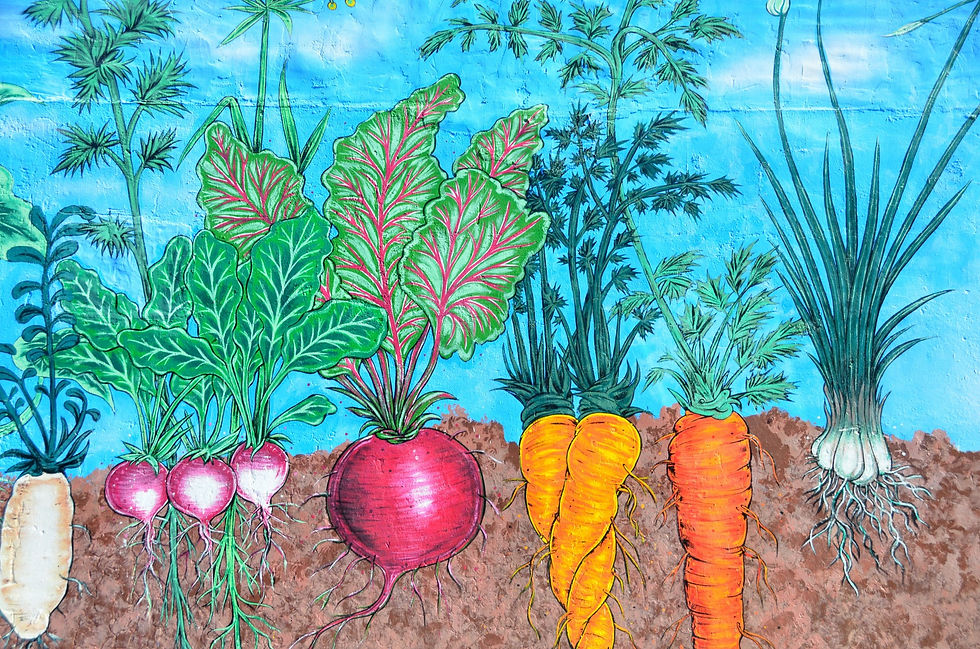Food as Medicine: The Universal Key To Health
- Shanell Rodriguez L.Ac
- Apr 7, 2017
- 3 min read

What we choose to eat is a highly personal subject. Many factors influence our diet: family customs and culture, finances, societal pressures, time constraint, and a faulty national nutritional campaign (think food pyramid), just to name a few. But, there is one thing that we all share in common when it comes to what we eat: food is our first line of defense against illness and disease. Thankfully, there are a handful of simple things you can do to ensure you are eating the right foods.
When shopping stick to the perimeter and avoid the aisles. In most grocery stores, the perimeter is where you will find produce, meat and seafood, dairy, and generally wholesome foods in their natural state. The aisles are temptingly filled with processed foods with a laundry list of unpronounceable ingredients that contain little to no nutritional value.
Eat more vegetables and less grains (bread, pasta, oatmeal, cereals, rice). When eating grains go for the whole grain (brown rice, whole wheat). Eat a variety of vegetables and give them enough room on your plate to cover at least half of it- they like a lot of room. Grains should only take up 1/4 of your plate. The rest can be filled with meat or seafood, fruit, fermented foods, and sprouted seeds.
Avoid added sugars. Read the nutritional labels of the foods you buy and make sure sugar is not an added ingredient. You’ll be surprised by how easily sugar is hidden in packaged food. Thankfully, the FDA just finalized a new nutrition label standard that requires added sugar to be labeled separately from naturally occurring sugars.
Check out all the different words food companies can use for simple sugar: Anhydrous dextrose, cane crystals, corn sweetener, corn syrup, corn syrup solids, crystal dextrose, evaporated cane juice, fructose sweetener, fruit juice concentrates, high-fructose corn syrup, honey, liquid fructose, malt syrup, maple syrup, molasses, pancake syrup, syrup, carbitol, concentrated fruit juice, corn sweetener, diglycerides, disaccharides, evaporated cane juice, erythritol, Florida crystals, fructooligosaccharides, galactose, glucitol, glucoamine, hexitol, inversol, isomalt, maltodextrin, malted barley, malts, mannitol, nectars, pentose, raisin syrup, ribose rice syrup, rice malt, rice syrup solids, sorbitol, sorghum, sucanat, sucanet, xylitol and zylose.
Breakfast is so so SO important. It gets your blood sugar and metabolism set up for the rest of your day. In Chinese Medicine each of our Organ’s function is most active during a specific time of day. According to this model, the digestive system is most active from 7-11am. If you are in the habit of skipping breakfast or eating a quick piece of toast with coffee, I encourage you to eat a wholesome, nourishing breakfast for one week and notice how your stamina, energy levels, and mood change.
Choose healthy fats and oils. These include butter and other animal fats, coconut oil, and monounsaturated fats such as olive oil, avocado oil and seed oils. Fats are not all made the same. Animal fats and coconut oil are chemically structured in a way that allows them to be heated without denaturing them, in other words these fats are great to cook with. Denatured fats are fats that are chemically altered and cause harm to the body in the form of oxidation (which is linked to cancer) and inflammation (which is the root of many diseases). Your monounsaturated fats are best raw or unheated. Eliminate trans-fats and refined vegetable oils (corn, canola, soy). These fats have been linked to many inflammatory diseases. The war waged on fats and cholesterol in the early 1990’s is coming to an end as new research is emerging that shows diets high in carbohydrates and sugars, and not fats and cholesterol, are the real culprits of weight gain and disease.
The politics behind food is a very long story and (spoiler alert) ends very disappointingly. Mainstream information and propaganda has been a major part in why our country is one of the fattest and most diabetic in the world. When compared to other wealthy nations, we are ranked as the most unhealthy and have the shortest life expectancy.
But things are turning around. Big companies are listening to the public outcry against highly processed foods and are offering more and more healthy alternatives. Food co-ops, organic aisles, and farmer’s markets are growing at a refreshing rate. Restaurants are offering locally sourced wholesome ingredients. More and more Americans are tuning into the health food movement and choosing to use their money to make a bold statement about the type of food we want on our tables. If you are hungry for more on diet and health, let's have a chat, I'd love to share all I've learned with you.


























Comments